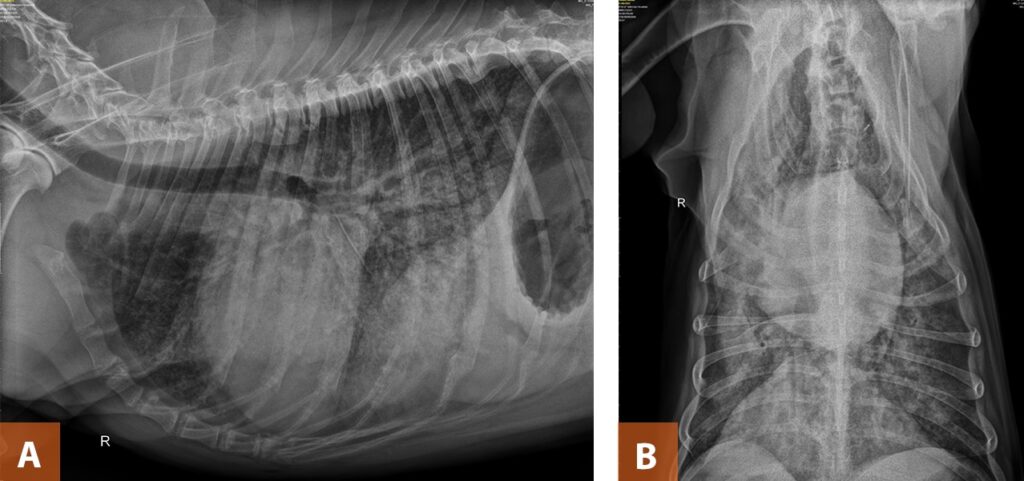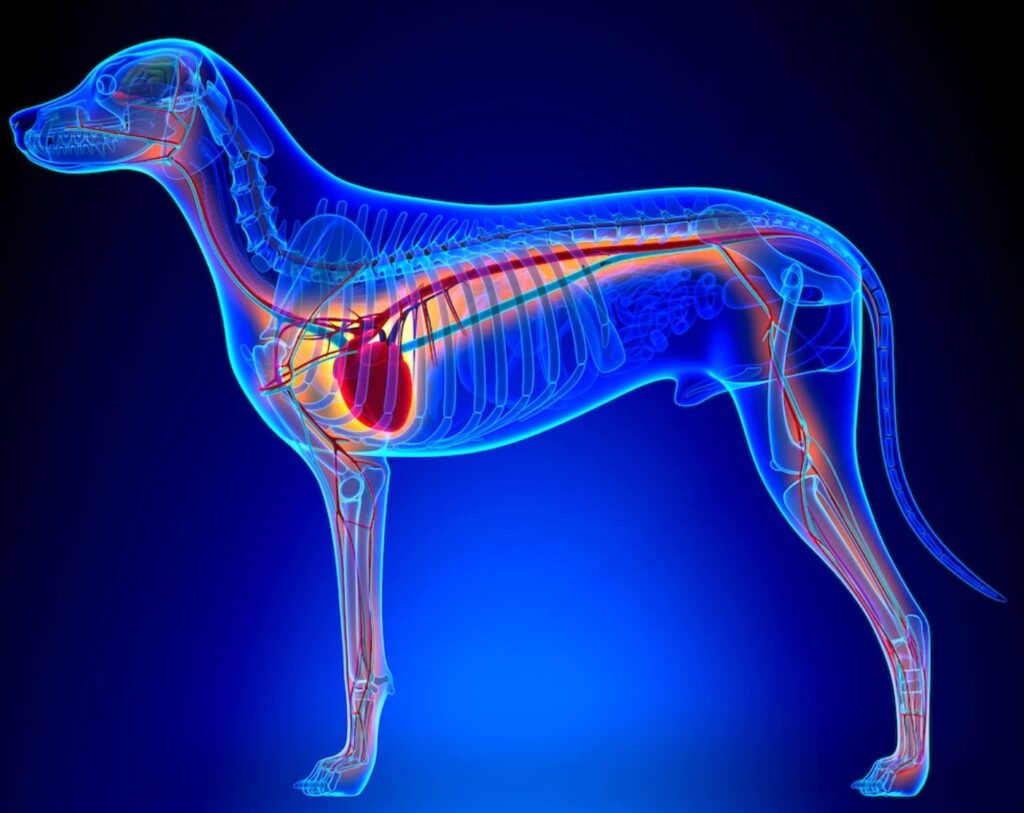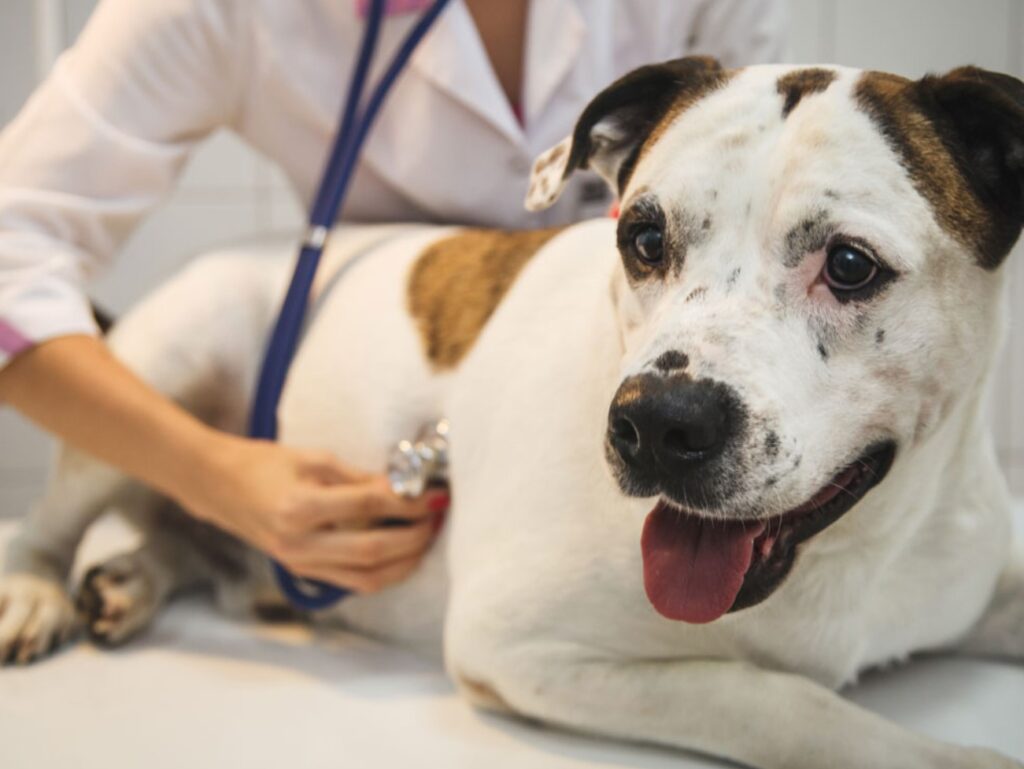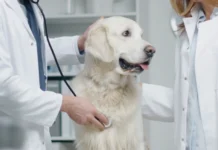We understand how hard it must be to learn that your dog is suffering from serious heart disease like congestive heart failure. But once the vet has diagnosed the disease, it is time for you to start with the medical attention and care that your dog would need.
It can be a challenging process, and you would need several resources to manage the disease. When your dog suffers from a heart condition, it requires a lot of care to stay comfortable. Therefore you must be prepared to do what it takes to ensure that your puppy can live happily with the condition for as long as it can.

What Is Congestive Heart Failure?
The first step towards taking care of your dog with Congestive Heart Failure (CHF) is to understand the disease properly. As the name suggests, your dog’s heart is not able to pump blood into its body the way it should. The blood that is supposed to get circulated in the body goes into the lungs or other chest cavities.
As a result, your dog’s body does not get enough oxygen, while its lungs get flooded with blood. The disease can appear in dogs in either a right-sided or left-sided form. Left-sided CHF is the more common of the two, where the blood floods into the lungs of the puppy, which can cause it to choke in severe cases. These are the symptoms of congestive heart failure:
- Regular coughing
- Difficulty in breathing
- Excessive breathing
- Fatigue
- Lack of energy
- Distended abdomen
- Coughing blood (severe cases)
If pet parents notice any of these symptoms, they must rush with their dog to the nearest veterinary clinic immediately. Congestive heart failure is mostly a hereditary disease, but it can also be the result of damages to the heart due to other factors.

How to Manage Congestive Heart Failure?
Fortunately, there are several ways to manage the disease so that your dog can live a comfortable life even with CHF. However, if you do not provide proper care to your dog suffering from congestive heart failure, it can prove fatal for it. Veterinary doctors usually prescribe pimobendan pills for dogs that have been diagnosed with CHF disease. Pimobendan pills are usually prescribed for long durations. Pet owners are usually advised to continue administering till the medication is effective. A great way to manage the cost of ongoing treatment is to buy medications such as Vetmedin from a reputed online pet pharmacy. Among other sites, you can check out PetCareRx.com for coupons and deals on pet meds.
You would need to administer the tablets orally every 12 hours on an empty stomach. They are usually flavored, so your dogs will think of them as treats. You can also dissolve the pills in water and feed it to your dog. However, if your dog doesn’t seem to like eating it, consult your vet since you cannot mix it in the food.
These are some of the ways to manage the disease efficiently.

What Are the Side Effects of Pimobendan Pills?
Pimobendan is generally a pretty safe drug for dogs. Side effects, even minor ones like vomiting and lethargy, are rare. In some rare cases, mitral valve regurgitation may occur as a side effect. Other symptoms such as increased heart rate and suppressed appetite can also manifest in dogs. If your dog is suffering from a major side effect, it’s best to contact a vet to either replace or modify the dosage.
How to Monitor Your Dog’s Heart Condition at Home?
Before you can start monitoring your dog’s heart condition at home, you need to set a benchmark. Measure your dog’s rate of breathing and heart rate at rest before starting the medication. Measure at different times throughout the day and keep a record of all the data points. Once you know your dog’s average heart rate and breathing rate at rest, you can then use that as a yardstick to monitor your dog’s heart health.

Routine Visits to the Vet
You will need to closely monitor your dog’s heart condition since it will be in a delicate state. Your vet would conduct regular checkups to look for any abnormalities. The checkups are essential to keep a watch of the dog’s heart, lungs, and other body organs.
Dietary Changes
When your dog suffers from congestive heart failure, your vet would prescribe certain changes to your dog’s lifestyle. That would include making several changes to your dog’s diet. You must feed a low sodium diet with extra nutrition that is good for your dog’s heart. Ask your vet about the supplements you can give your puppy without disrupting its medication.
Monitoring at Home
In addition to the regular visits to the veterinary doctor and checkup, you would also need to monitor your dog’s health at home. That means you would have to make certain modifications to your daily schedule as well.
One of the most essential things that you would need to learn is to monitor your dog’s rate of respiration. If you notice sudden changes in the breathing speed, you may need to rush to the veterinary clinic. Your vet will prepare you for the other necessary measures that you would need to take.

Exercise Cautiously
You must restrain your dog from doing any type of intense exercise because they often do but realize their physical limitations. If your puppy loves to play, try to restrict them indoors as much as possible. But do not impose so many restrictions that make your dog unhappy. Instead, take it for a walk on a leash, and keep an eye on its breathing and energy levels.
Caring for a dog suffering from congestive heart failure can be a lot of work for pet parents. However, with proper care, your puppy can live happily for several years, even after getting diagnosed with the disease.









